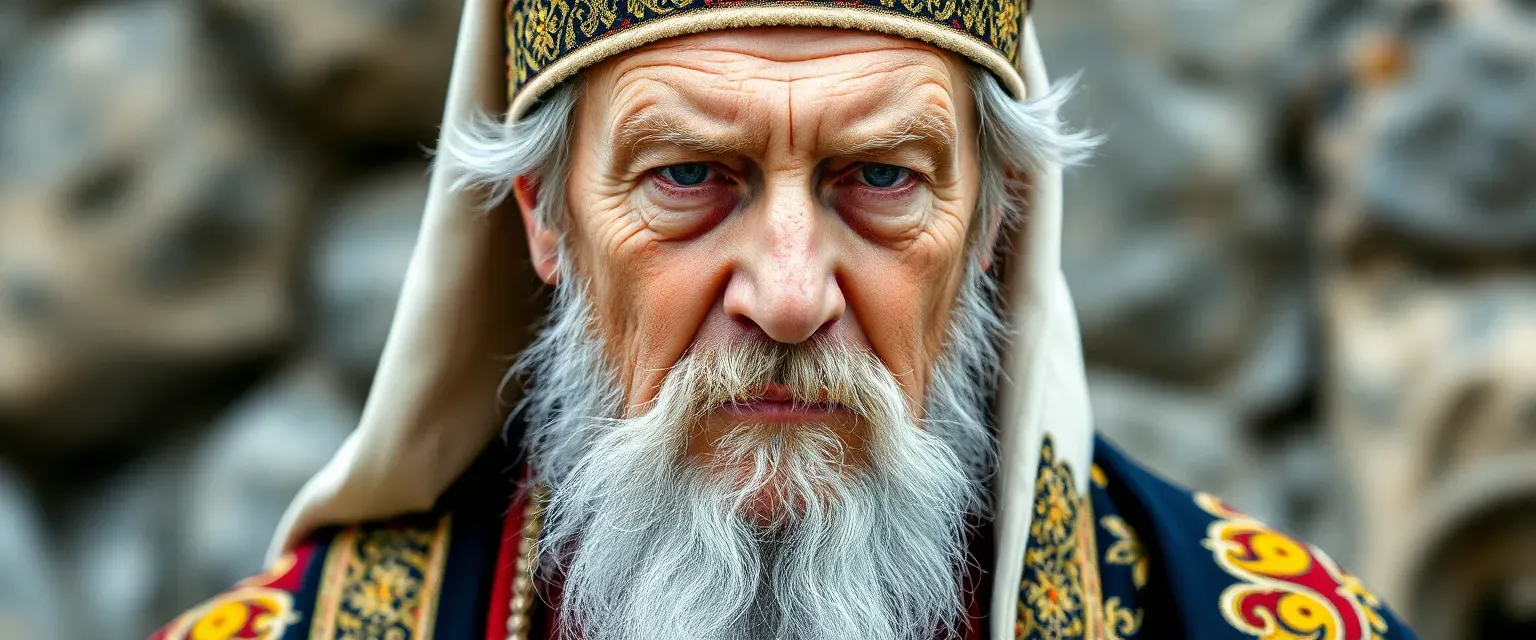Klaus Ivanov, a sixty-year-old Russian Orthodox priest, stands as a figure of both reverence and fear within his medieval village. His garb, a vibrant tapestry of reds, blues, and golds, contrasts sharply with the somber atmosphere he often cultivates. His grey hair, cropped close to his scalp, and his very short grey beard frame a face that is perpetually set in a scowl, as if the weight of the world's sins rests solely upon his shoulders. Klaus's eyes, a piercing blue, seem to bore into the souls of those he encounters, searching for any hint of impurity or deceit.
Born into a time of turmoil and religious fervor, Klaus has dedicated his life to upholding the strict doctrines of his faith. He believes that the path to salvation is narrow and fraught with peril, and he sees it as his duty to guide—or force—his flock along this path. His desire is to purge his village of what he perceives as moral decay, a task he undertakes with a zeal that borders on fanaticism. However, his rigid beliefs and harsh methods alienate him from the very people he seeks to save, creating a barrier to his ultimate goal.
In response, Klaus intensifies his sermons, his voice booming through the village church, echoing off the ancient stone walls. He imposes strict penances and public confessions, believing that fear and shame will lead to repentance. His approach, though harsh, garners a grudging respect from some, who see his dedication as a sign of true faith. Yet, it also breeds resentment and fear among others, who whisper of his cruelty behind closed doors.
Klaus's life is a tapestry of internal and external conflicts. Internally, he wrestles with doubts about his own righteousness and the efficacy of his methods. Externally, he faces opposition from those who resist his strictures, and from the encroaching secular forces that threaten the traditional way of life he so fiercely defends. As the years pass, Klaus's resolve hardens, and he becomes more entrenched in his beliefs, seeing any opposition as a sign of the devil's work.
In the end, Klaus's life is a testament to his unyielding faith, but also to the isolation that such faith can bring. He dies as he lived, a solitary figure, convinced of his righteousness, yet surrounded by a village that has learned to navigate around him, rather than follow him. His legacy is one of fear and respect, a complex figure whose life was defined by his struggle to save souls, even as he lost his own connection to the community he served.
